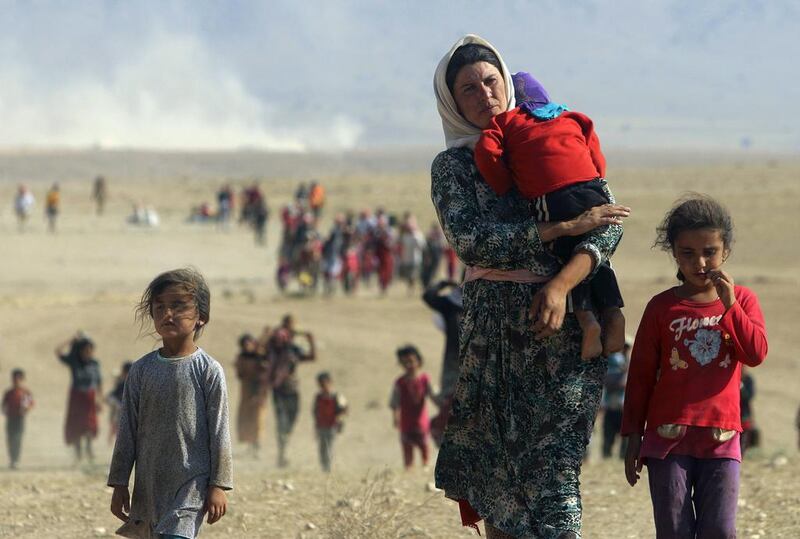A Human Rights Watch report issued on Wednesday urged the Iraqi government to hold fighters from Iraq’s Yazidi community accountable for war crimes.
The watchdog reported that Yazidi armed fighters - whose community was brutally targeted by ISIL in August 2014 - executed 52 civilians in apparent revenge killings after capturing territory from ISIL extremists.
"For those units that have been abusive, there has to be some punishment for their behaviour- they can't be allowed to continue to carry out their functions," Belkis Wille, senior Iraq researcher at Human Rights Watch told The National.
Relatives of victims told Human Rights Watch that on June 4, 2017, Yazidi forces detained and then apparently executed men, women, and children.
The watchdog said Yazidi forces were also "implicated in two other incidents of enforced disappearance" of members of local Sunni Arab tribes in late 2017.
The report suggests that the Iraqi government take adequate measures to investigate alleged criminal offences by all parties, in order for the perpetrators to be prosecuted for war crimes.
Those killed reportedly came from eight families of the Sunni Al Bu Metewut tribe who were escaping clashes between ISIL and pro-government militias north of the second city Mosul, the group said.
Yazidi fighters formed the Lalish Brigades and the Ezidkhan Brigades, units under the Popular Mobilization Forces (PMFs), also known as Hashed Al Shaaby, a force of the Iraqi prime minister Haider Al Abadi, and therefore part of the state’s armed forces.
Two Yazidi community leaders told Human Rights Watch that the Ezidkhan Brigades were responsible for the abduction and killing of the 52 members.
______________
Read more:
Iraq year in review: the country may be free of ISIL but lies in ruins
Battle to remove ISIL from Hawija could unlock further sectarian tensions
______________
“There are certain units within the PMFs who are considerably more problematic and the ones that have been clearly linked to massacres and war crimes, torture and holding of prisoners,” Ms Wille said.
The incident documented by HRW was allegedly carried out by members of a Yazidi militia which is known to be a part of the broader Hashed Al Shabby coalition.
ISIL unleashed a brutal campaign against the Yazidis after seizing Iraq's Sinjar area in 2014. The community was targeted by the extremists for their non-Muslim faith in an attack that the UN says could amount to genocide.
Thousands of men from the predominantly Kurdish-speaking minority were slaughtered, women and girls abducted as sex slaves and boys sent to military training camps.
The watchdog argues that these crimes amount to war crimes, crimes against humanity and genocide. A legal advisor for the Yazidi brigade confirmed to HRW that the fighters had in fact been involved in the capture of 52 individuals, but said the local tribe were "dogs who deserve to die."
Yazidi officials have accused local tribes of helping to carry out atrocities against their community, allegations tribal leaders deny.
HRW reiterated that Baghdad has a "responsibility to investigate and prosecute abuses against Yazidis members."
Now as ISIL has been forced from all its territory in Iraq, and the vast bulk of its holdings in neighbouring Syria, concern has grown over reprisal attacks against those who lived under its rule.
"As the ground fighting against ISIL winds down in, state security forces need to turn their focus to preventing retaliation and upholding the rule of law," Lama Fakih, deputy Middle East director at Human Rights Watch said.
"Past atrocities against the Yazidis don't give its armed forces a free pass to commit abuses against other groups, whatever their past," she said.
Iraqi Kurdish officials said in early December that some 3,200 Yazidi women and girls abducted by ISIL remain missing.






